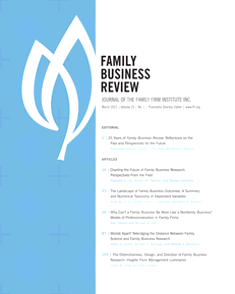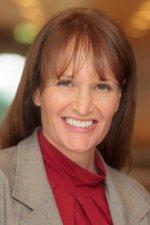The Quiet Power of the ‘Most Trusted Advisor’
Editor’s note: We are pleased to welcome Dr. Vanessa M. Strike of Erasmus University in Rotterdam, the Netherlands, who provides an inside look at two of her articles recently published in Family Business Review. Read the full-text articles here and here.
Queen Elizabeth I had Courtier Sir Francis Walsingham. Don Vito Corleone had family lawyer and consigliore Tom Hagan. From ancient Chinese dynasties to present-day family firms, “Most Trusted Advisors” have been quietly wielding power for centuries.
 I first became intrigued by the role of Most Trusted Advisor (MTA) over a decade ago when I asked a long-serving individual in a family-controlled firm what exactly he did. He replied, “If nobody knows who I am, or what I do, then I know I am doing my job.” His reply settled and dwelt within me as I became both intrigued and inspired to determine just who he was, and what he did.
I first became intrigued by the role of Most Trusted Advisor (MTA) over a decade ago when I asked a long-serving individual in a family-controlled firm what exactly he did. He replied, “If nobody knows who I am, or what I do, then I know I am doing my job.” His reply settled and dwelt within me as I became both intrigued and inspired to determine just who he was, and what he did.
Over the course of the next ten years I conducted a grounded theory study that examined the role of the MTA and the subtle advice process. I interviewed nine MTAs and the families they advised in six family firms. I found MTAs were a challenging group to gain access to. They are very private as they are privy to the sacrosanct areas of the family and firm, and they have an integral role in holding many family firms together.
 In documenting the role of MTAs what I found surprising was that the existence of MTAs has largely remained unknown, even to scholars within the inner circle of family firms. Furthermore, that MTAs derive their power not from the advice they give, but the way they give it.
In documenting the role of MTAs what I found surprising was that the existence of MTAs has largely remained unknown, even to scholars within the inner circle of family firms. Furthermore, that MTAs derive their power not from the advice they give, but the way they give it.
In examining both their subtle role “nobody knows who I am”, and the subtle advice process “nobody knows what I do”, the study makes three primary contributions. First, it empirically identifies the MTA’s role. Second, it uncovers how subtle and overt advice practices and tactics allow the MTA to direct and guide attention in family firms. Third, it documents how MTAs work to benefit the collective of the family firm as opposed to their own self-interest which is common in many advising relationships.
MTAs are different from other kinds of consultants. They advise the firm on both business and family matters. They try to prevent the worst from happening: succession problems, family breakup, and business collapse. They occupy a position of exceptional trust, which enables them to challenge ideas and offer new perspectives. As per one family business owner:
“You’ve got a cocktail shaker and you put in all kinds of things that come from other people, but the shaking up of the drink and making it new, it’s only you who can do that. So while you get input from a lot of people in the end you take that and think about it and it becomes you and you decide. But some people have more influence on that drink you are going to serve. And that’s the difference between the advisor and the Most Trusted Advisor.”
Advisors help entrepreneurs obtain better access to resources, create long term plans, and put in place good decision-making processes. This research provides family firms with an idea of the qualities they need to look for in an advisor, an understanding of what a good advisor can do, and how he or she can do it. For family firm practitioners MTAs can guide and direct family members attention, helping them to think about issues differently. Effective advisors should:
• Develop voice and self-awareness, building on their personal strengths
• Gain broad experience and knowledge
• Focus on understanding family dynamics, emotions and ability of family members to deal with multiple issues
• Assist the family to stay focused on the goal of family unity.
Read the article, The Most Trusted Advisor and the Subtle Advice Process in Family Firms, online in the Family Business Review September 2013 issue.
During the course of my work and research on family firms I became aware of the importance of advisors to the firms’ success and survival. Advisors are especially salient to family firms as these firms must balance both the business and family systems, and the overlap between the two. Family firm advisors help to achieve this balance. In doing so they must often fill multiple roles and are privy to the most intimate secrets of the family, the sacrosanct areas. With this knowledge family firm advisors can do much good, yet this knowledge also provides them with the opportunity to do much harm.
What I found surprising is that despite their quiet power and importance to the firm, limited scholarly research has been conducted on family firm advisors. This study lays the foundation for several other studies I am currently working on that explores the role of family firm advisors from a grounded theory perspective.
R ead the article, Advising the Family Firm: Reviewing the Past to Build the Future, online in the Family Business Review June 2012 issue.
ead the article, Advising the Family Firm: Reviewing the Past to Build the Future, online in the Family Business Review June 2012 issue.
Vanessa M. Strike, PhD, is an assistant professor in the Department of Strategic Management and Entrepreneurship and the founding and scientific director of the Erasmus Centre for Family Business, Rotterdam School of Management, Erasmus University, the Netherlands.































































































